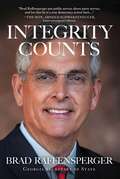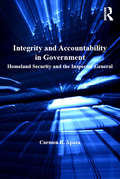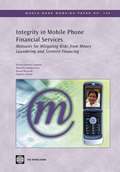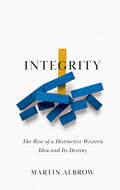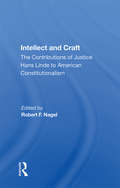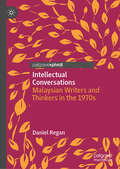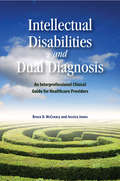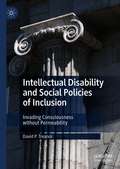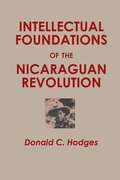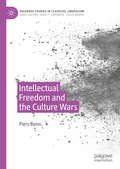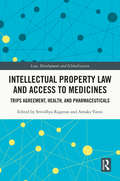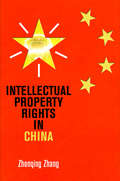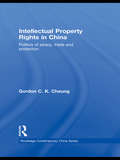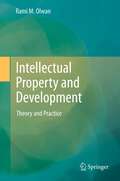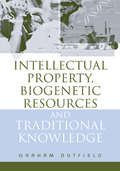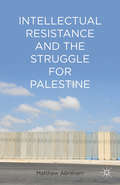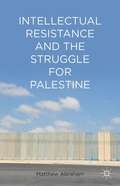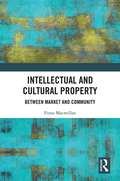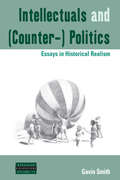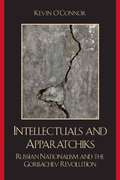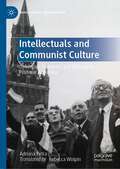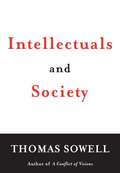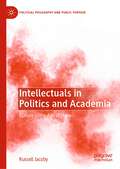- Table View
- List View
Integrity Counts
by Brad RaffenspergerIn Integrity Counts, lifelong Republican and Georgia Secretary of State Brad Raffensperger speaks out against the former president&’s false claims of voter fraud in the 2020 election and hopes to restore confidence and trust in our country&’s elections. &“Brad Raffensperger put public service above party service, and for that he is a true democracy action hero, and he is also my hero. His book serves as a reminder that American democracy is bigger than any individual candidate or election.&” —THE HON. ARNOLD SCHWARZENEGGER, former governor of California Integrity stands as the cornerstone of American democracy. Brad Raffensperger, Georgia Secretary of State, defended American democracy by refusing to bend to demands that he change the legitimate results of the 2020 presidential election in his state. Raffensperger&’s defense of democracy made him a target of President Donald Trump for months following the election, culminating in an hour-long phone call in which the president told him, &“I just want to find 11,780 votes,&” the exact number he needed to win Georgia&’s sixteen Electoral College votes. Once again, Raffensperger refused. Georgia voters had spoken. A lifelong conservative Republican who had financially supported President Trump&’s reelection campaign and voted for Trump, Raffensperger called for a hand recount of every vote to confirm the results and affirm the integrity of Georgia&’s election. Still President Trump persisted in his personal attacks. One of the most troubling questions in the wake of the 2020 election, Raffensperger says, is whether America will see every candidate who loses a major election refuse to accept the results and, instead, set out to raise money and build support on unfounded claims of fraud and corruption. To avoid that prospect, Americans must come to terms with the scope of the problem, but doing so won&’t be comfortable for either party. Either party because the 2020 crisis was not unprecedented in Georgia. By November 2020, Raffensperger had been challenging the claims of a &“stolen election&” for nearly two years. In the fall of 2018, after Democrat Stacey Abrams lost the race for governor of Georgia, she told a crowd of supporters, &“So, to be clear, this is not a speech of concession. Concession means to acknowledge an action is right, true, or proper. As a woman of conscience and faith, I cannot concede.&” The similarities don&’t end there, and when considered with some care, they paint a troubling picture of an all-too-bipartisan willingness to undermine the integrity of our democracy, and the public&’s confidence in it, for the sake of personal and partisan gain. Integrity Counts tells Raffensperger&’s inspiring story of commitment to the integrity of American democracy.
Integrity and Accountability in Government: Homeland Security and the Inspector General (Homeland Security)
by Carmen R. ApazaThe Inspector General (IG)'s mission is to expose fraud, waste and abuse as well as promoting efficiency in federal agencies. Each year billions of dollars are returned to the Federal government or are better spent based on recommendations from IGs reports. IG investigations have also contributed to the prosecution of thousands of wrongdoers including contractors and public employees. With scarce literature on Inspectors General (IGs), Apaza addresses this by looking at the Inspector General for the Department of Homeland Security (DHS) which has proven to be of significant benefit to the US government.
Integrity in Mobile Phone Financial Services
by Andrew Zerzan Raul Hernandez-Coss Kamil Borowik Pierre-Laurent ChatainGovernments are challenged to make an innovation-friendly climate while simultaneously ensuring that business development remain sustainable. Criminal use of the technology-terrorist financing and money laundering-challenges long-run business viability via risk of massive investment flight and public distrust of new players entering the market. Sustainable business models are those that base regulation on a careful risk-based analysis. This study identifies the perceived risks and compares them with the actual level of risk for each category of mobile phone financial services. The comparison reveals that the perceptions do not weigh up to the reality. Based on fieldwork in seven locations where the technology has taken off, this paper finds that providers apply measures that are consistent with international standards to combat money laundering and terrorist financing. It identifies the sometimes non-traditional means the industry uses that both mitigate the risks and are in line with good business practices. Acknowledging that mobile phone financial services are no riskier than other channels, governments are called to treat them as an opportunity to expand access to finance.
Integrity: The Rise of a Distinctive Western Idea and Its Destiny
by Martin AlbrowPublic life is dominated from time to time by media storms around integrity. The behaviour of elected political leaders has led many to decry the deterioration in standards and the lack of integrity in public life. But what is integrity, and where does our concern with integrity in public life come from? In this book, Martin Albrow argues that integrity has been an essential component of the rise of the West and a key feature that distinguishes the West from other civilizations. He traces the idea of integrity back to its roots in ancient Greece and Rome, where integrity acquired its special meaning: the unique feature of any object with integrity was that it combined its wholeness or completeness with the embodiment of standards that came from outside it. Integrity was unity through values. He then follows the story of integrity through early Christianity and the Renaissance to the present day. Today, we find ourselves in the paradoxical situation where the lack of integrity in public life is widely condemned while, at the same time, politicians can remain popular without even pretending to act with integrity: this is the new politics of the integrity vacuum. The idea of integrity may be a distinctively western one but, like many other aspects of western culture, it has now become a property of worldwide society. Albrow concludes by arguing that integrity could add more value today by being combined with non-western wisdom as we strive to create an order where honesty, trust and reliability in our relationships with others are paramount. This highly original account of an idea that lies at the heart of western culture will be of interest to anyone concerned about the state and future of our public life.
Intellect And Craft: The Contributions Of Justice Hans Linde To American Constitutionalism
by Robert F NagelJustice Hans Linde interrupted a distinguished academic career to serve on the Oregon Supreme Court, where he came to be viewed as one of the two or three most important state court judges in this century. Now in retirement from the bench, Linde continues to make significant scholarly contributions that are vitally enriched by his judicial experien
Intellectual Conversations: Malaysian Writers and Thinkers in the 1970s
by Daniel ReganThis book conveys the essence of a series of guided conversations with leading Malaysian intellectuals—predominantly writers, journalists, academicians, some artists, and other thinkers—in the early 1970s. Based on interviews with 133 intellectuals, supplemented by hours of informal conversation, socializing, and common attendance at intellectual activities or events, the book highlights the cultural significance of the 1970s, an under-appreciated era, and features “conversations” on topics that are integral to the nation’s intellectual history. Topics covered include freedom of speech and expression, their most admired cultural centres, religion, democracy, and the role for intellectuals in Malaysian society. The project uses an innovative approach that eschews conventional biographical sketches in favour of allowing intellectual informants to “speak” in their own voices.
Intellectual Disabilities and Dual Diagnosis: An Interprofessional Clinical Guide for Healthcare Providers
by Jessica Jones Bruce D. MccrearyContemporary policy in the care of persons with developmental disabilities is focused on "social inclusion" and equity. Healthcare professionals in the mainstream are tasked to ensure that their services are both available and responsive to caring for individuals. This clinical guide, written by a psychiatrist and a clinical psychologist with clinical and academic expertise, aims to outline relevant knowledge, skills, and attitudes needed to promote better health outcomes for people with developmental disabilities. The guide is organized into three sections and includes learning objectives and self-examination questions on content. The first section on knowledge covers definitions, etiological factors, health problems, mental health problems, and the service needs of individuals and their caregivers as they evolve over the lifespan. Section two focuses on skills including assessment, case formulations, interprofessional collaboration, and the provision of developmental services, psychosocial treatments, and biomedical treatments. The final section reviews attitudes related to the provision of empathetic support, respect for interprofessional collaboration, vigilance about neglect and abuse, and various special challenges in providing care. The authors also address informed consent, sexuality, parenting, and individuals in conflict with the law.
Intellectual Disabilities and Dual Diagnosis: An Interprofessional Clinical Guide for Healthcare Providers (Queen's Policy Studies Series)
by Jessica Jones Bruce D. McCrearyContemporary policy in the care of persons with developmental disabilities is focused on "social inclusion" and equity. Healthcare professionals in the mainstream are tasked to ensure that their services are both available and responsive to caring for individuals. This clinical guide, written by a psychiatrist and a clinical psychologist with clinical and academic expertise, aims to outline relevant knowledge, skills, and attitudes needed to promote better health outcomes for people with developmental disabilities. The guide is organized into three sections and includes learning objectives and self-examination questions on content. The first section on knowledge covers definitions, etiological factors, health problems, mental health problems, and the service needs of individuals and their caregivers as they evolve over the lifespan. Section two focuses on skills including assessment, case formulations, interprofessional collaboration, and the provision of developmental services, psychosocial treatments, and biomedical treatments. The final section reviews attitudes related to the provision of empathetic support, respect for interprofessional collaboration, vigilance about neglect and abuse, and various special challenges in providing care. The authors also address informed consent, sexuality, parenting, and individuals in conflict with the law.
Intellectual Disability and Social Policies of Inclusion: Invading Consciousness without Permeability
by David P. TreanorThis book explores why, after forty years of funded policies of social inclusion, persons living with an intellectual disability are still separated from the social fabric of neoliberal societies. David Treanor shows how the nature of the reform process is driven unnecessarily by the economic neoliberal paradigm, the cultural misconceptions of intellectual disability, and the inattention accorded to personal relationships between persons living with and without an intellectual disability. Treanor utilizes John Macmurray’s personalist philosophy, Julia Kristeva’s ontology of disability and Michele Foucault’s concept of bio-power to explain this phenomenon. The concepts in this book challenge current approaches to social inclusion and have radical implications for future practices.
Intellectual Foundations of the Nicaraguan Revolution
by Donald C. HodgesIn this critical study of the thought of Augusto Cesar Sandino and his followers, Donald C. Hodges has discovered a coherent ideological thread and political program, which he succeeds in tracing to Mexican and Spanish sources. Sandino's strong religious inclination in combination with his anarchosyndicalist political ideology established him as a religious seer and moral reformer as well as a political thinker and is the prototype of the curious blend of Marxism and Christianity of the late twentieth-century Nicaraguan government, the Frente Sandinista de Liberación Nacional.
Intellectual Freedom and the Culture Wars (Palgrave Studies in Classical Liberalism)
by Piers BennThis book offers a sustained and vigorous defence of free expression and objective enquiry situated in the context of the current culture wars. In the spirit of J. S. Mill, Benn investigates objections to the ideal of free expression in relation to harm and offence, reaching broadly liberal conclusions with reference to recent examples of attempts to curb free speech on university campuses. Accepting that some expressions can cause non-physical harm, Benn also considers objections to free speech based on certain understandings of power and privilege. In its exploration and rejection of arguments against the possibility of obtaining objective truth, the book navigates hotly contested fields of contemporary debate, including feminism and identity politics. It challenges the dogma of social constructionism and examines current notions of identity, arguing that a case for fairness can be made without appealing to them. Offering a qualified endorsement of friendship between ideological opponents, Benn highlights common obstacles to civil and rational discussions, concluding with a rational, moral, and broadly spiritual solution to the cultural combat that monopolises present-day society.
Intellectual Property Law and Access to Medicines: TRIPS Agreement, Health, and Pharmaceuticals (Law, Development and Globalization)
by Srividhya RagavanThe history of patent harmonization is a story of dynamic actors, whose interactions with established structures shaped the patent regime. From the inception of the trade regime to include intellectual property (IP) rights to the present, this book documents the role of different sets of actors – states, transnational business corporations, or civil society groups – and their influence on the structures – such as national and international agreements, organizations, and private entities – that have caused changes to healthcare and access to medication. Presenting the debates over patents, trade, and the Agreement on Trade-Related Aspects of Intellectual Property Rights (TRIPS Agreement), as it galvanized non-state and nonbusiness actors, the book highlights how an alternative framing and understanding of pharmaceutical patent rights emerged: as a public issue, instead of a trade or IP issue. The book thus offers an important analysis of the legal and political dynamics through which the contest for access to lifesaving medication has been, and will continue to be, fought. In addition to academics working in the areas of international law, development, and public health, this book will also be of interest to policy makers, state actors, and others with relevant concerns working in nongovernmental and international organizations.
Intellectual Property Rights in China
by Zhenqing ZhangOver the past three decades, China has transformed itself from a stagnant, inward, centrally planned economy into an animated, outward-looking, decentralized market economy. Its rapid growth and trade surpluses have caused uneasiness in Western governments, which perceive this growth to be a result of China's rejection of international protocols that protect intellectual property and its widespread theft and replication of Western technology and products. China's major trading partners, particularly the United States, persistently criticize China for delivering, at best, half-hearted enforcement of intellectual property rights (IPR) norms. Despite these criticisms, Zhenqing Zhang argues that China does respect international intellectual property rights, but only in certain cases. In Intellectual Property Rights in China, Zhang addresses the variation in the effectiveness of China's IPR policy and explains the mechanisms for the uneven compliance with global IPR norms.Covering the areas of patent, copyright, and trademark, Zhang chronicles how Chinese IPR policy has evolved within the legacy of a planned economy and an immature market mechanism. In this environment, compliance with IPR norms is the result of balancing two factors: the need for short-term economic gains that depend on violating others' IPR and the aspirations for long-term sustained growth that requires respecting others' IPR. In case studies grounded in theoretical analysis as well as interviews and fieldwork, Zhang demonstrates how advocates for IPR, typically cutting-edge Chinese companies and foreign IPR holders, can be strong enough to persuade government officials to comply with IPR norms to achieve the country's long-term economic development goals. Conversely, he reveals the ways in which local governments protect IPR infringers because of their own political interests in raising tax revenues and creating jobs.
Intellectual Property Rights in China: Politics of Piracy, Trade and Protection (Routledge Contemporary China Series)
by Gordon C.K CheungIntellectual Property Rights (IPR) infringement is so rampant in China that counterfeit goods - from general household merchandise, garments and media consumables to specialist products including pharmaceutical products and super computer chips - can be found in roadside stalls, markets, shops, department stores and even laboratory of leading universities. If allowed to continue these infringements may further engender a socially accepted culture of ‘fakeness’ that may seriously hamper innovation and economic progress. Gordon C. K. Cheung uses the case of intellectual property rights (IPR) to examine how and to what extent market forces and knowledge development affect the relationships of China and the world, especially the United States. Including detailed original statistics and data collected from Chinese provinces and cities and in-depth interviews with legal experts and policy makers, this book gives a unique insight into the opportunities and challenges that China faces as it increasingly becomes part of the global society. Intellectual Property Rights in China is a stimulating read for anyone studying Chinese Business and International Political Economy.
Intellectual Property and Development
by Rami M. OlwanThe book examines the correlation between Intellectual Property Law - notably copyright - on the one hand and social and economic development on the other. The main focus of the initial overview is on historical, legal, economic and cultural aspects. Building on that, the work subsequently investigates how intellectual property systems have to be designed in order to foster social and economic growth in developing countries and puts forward theoretical and practical solutions that should be considered and implemented by policy makers, legal experts and the Word Intellectual Property Organization (WIPO).
Intellectual Property, Biogenetic Resources and Traditional Knowledge
by Graham DutfieldBiogenetic resources - the critical biological and chemical materials that underpin so much of medicine, both modern and traditional, agriculture, and wider economic activity in so many fields - are at the centre of heated debate regarding their use, development, and ownership, and the issues of ethics and equity that impinge on all of these factors. This book is a comprehensive examination of the key issues, institutions and ideologies in this area, presenting definitions and explanations of the fundamentals of intellectual property rights (IPRs), biogenetic resources and traditional knowledge. It uses the insights from this to build a picture of how these factors interact in practice, bringing to the surface issues such as: the conservation and sustainable use of biodiversity, benefit sharing from the commercial use of biodiversity, biotechnological innovation and the transfer of technology, agriculture, food security, rural development, health and international justice. Part 1 describes the relevant international IPR laws, highlights the extent to which modern commerce depends on such resources, and traces the way in which modern IPR law has evolved to accommodate this dependence. Part 2 shows how stronger IPR protection in the area of life science innovation has given rise to controversies such as 'biopiracy', 'terminator' genes and genetic uniformity. Part 3 focuses on traditional knowledge, its nature, its importance, and the applicability of IPR-style protection. Part 4 covers the international negotiation and policy-making of the WTO, WIPO and CBD and the legislative initiatives of national governments of Asia, Africa and Latin America. Finally, Part 5 focuses on two developing country case studies - of India and Kenya - assessing whether they will be able to gain economic benefit from development of their natural resources within the current regulatory system and whether this will encourage the conservation and sustainable use of the resource base. With its multidisciplinary approach and breadth of coverage, this book will appeal both to those new to the subject and to those with professional and specialist interest, including students, academics, legal practitioners, government policy-makers and the private sector.
Intellectual Resistance and the Struggle for Palestine
by M. AbrahamBy positioning the late Edward Said's political interventions as a public intellectual on behalf of Palestinian populations living under Israeli occupation as a form of intellectual resistance, Abraham moves to consider forms of physical resistance, seeking to better understand the motivations of those who choose to turn their bodies into weapons.
Intellectual Resistance and the Struggle for Palestine
by Matthew AbrahamIntellectual Resistance and the Struggle for Palestine.
Intellectual and Cultural Property: Between Market and Community
by Fiona MacmillanThis book focuses on the fraught relationship between cultural heritage and intellectual property, in their common concern with the creative arts. The competing discourses in international legal instruments around copyright and intangible cultural heritage are the most obvious manifestation of this troubled encounter. However, this characterization of the relationship between intellectual and cultural property is in itself problematic, not least because it reflects a fossilized concept of heritage, divided between things that are fixed and moveable, tangible and intangible. Instead the book maintains that heritage should be conceived as part of a dynamic and mutually constitutive process of community formation. It argues, therefore, for a critically important distinction between the fundamentally different concepts of not only intellectual and cultural heritage/property, but also of the market and the community. For while copyright as a private property right locates all relationships in the context of the market, the context of cultural heritage relationships is the community, of which the market forms a part but does not – and, indeed, should not – control the whole. The concept of cultural property/heritage, then, is a way of resisting the reduction of everything to its value in the market, a way of resisting the commodification, and creeping propertization, of everything. And, as such, the book proposes an alternative basis for expressing and controlling value according to the norms and identity of a community, and not according to the market value of private property rights. An important and original intervention, this book will appeal to academics and practitioners in both intellectual property and the arts, as well as legal and cultural theorists with interests in this area.
Intellectuals and (Counter-) Politics: Essays in Historical Realism
by Gavin SmithContemporary forms of capitalism and the state require close analytic attention to reveal the conditions of possibility for effective counter-politics. On the other hand the practice of collective politics needs to be studied through historical ethnography if we are to understand what might make people's actions effective. This book suggests a research agenda designed to maximize the political leverage of ordinary people faced with ever more remote states and technologies that make capitalism increasingly rapacious. Gavin Smith opens and closes this series of interlinked essays by proposing a concise framework for untangling what he calls "the society of capital" and subsequently a potentially controversial way of seeing its contemporary features. This book tackles the political conundrums of our times and asks what roles intellectuals might play therein.
Intellectuals and Apparatchiks: Russian Nationalism and the Gorbachev Revolution
by Kevin O'ConnorThis book traces the origins and activities of an alliance of conservative Communist Party authorities and Russian nationalists during the late Soviet era. Specifically, it examines how and to what extent hitherto orthodox Communists sought political allies in the Russian nationalist movement in order to garner support for halting the reform program and saving the Soviet state from collapse. Focusing on the perestroika period, Dr. Kevin O'Connor explains in detail how Marxism-Leninsim receded into irrelevance, forcing orthodox Communists to abandon their Marxist principles in favor of great Russian nationalism.
Intellectuals and Communist Culture: Itineraries, Problems, and Debates in Post-war Argentina (Marx, Engels, and Marxisms)
by Adriana PetraThis book investigates a central chapter in the history of 20th century intellectualism: the commitment to the communist ideal and the Soviet Union. Focusing on Argentina, whose communist party was among the most important in Latin America, Petra engages with the current literature on Western communism in order to conduct an exhaustive study of the intellectuals, cultural organizations, publications, and debates within Argentine communism in the decades following World War II. Based on rigorous archival research from diverse sources, Petra’s book distances itself from existing teleological visions and institutional approaches to the communist world, offering instead a complex framework in which multiple contexts, scales, and actors frame the larger problem: the intellectual commitment to a political project that brooked no dissent. Intellectuals and Communist Culture also addresses the emergence of Peronism, a crucial movement in Argentine political life to this very day, thus offering an important chapter on Latin American political and intellectual history and an invaluable contribution to the global history of the international communist movement.
Intellectuals and Society
by Thomas SowellSowell (Hoover Institution, Stanford U. ) issues a right-wing jeremiad against the intelligentsia, the membership of which seems to primarily consist of academics, writers, etc. whose views he finds distasteful. If there is a core argument to the work, it is that intellect does not equal wisdom, that the ideas of intellectuals are not subjected to empirical verifiability, and that intellectuals wield an outsized influence on society that often leads to harmful outcomes (less so, he notes gratefully, in the United States than in Europe, although it is telling that he places the high point of US intellectuals' influence as being in the 1960s and 1970s, an era of greater left influence than later decades). However, this core argument appears to be less of a thesis to be proved than a hook upon which to hang a litany of complaints against ideas that he disagrees with in the realms of economics, social visions, the law, and war. With regards to these complaints, Sowell is frequently less than convincing, as he rarely treats the ideas of his opponents with even a semblance of seriousness. On the very first page, for instance, he argues that Marx's idea that labor is the source of all wealth is disproved because, "if this were true, countries with much labor and little technology or entrepreneurship would be more prosperous than countries with the reverse, when in fact it is blatantly obvious that the direct opposite is the case. " This is such a laughably ridiculous distortion of Marx's theory of labor value that is hard to imagine that any thoughtful reader could possibly take it, or most of the rest of Sowell's similarly-styled arguments, seriously. Those on the right who merely want their political beliefs reinforced may find the work enjoyable however. Annotation ©2011 Book News, Inc. , Portland, OR (booknews. com)
Intellectuals and the Search for National Identity in Twentieth-Century Brazil
by Ronald H. ChilcoteThis book discusses twentieth-century Brazilian political thought, arguing that while Rio de Janeiro intellectuals envisaged the state and the national bourgeoisie as the means to overcome dependency on foreign ideas and culture, São Paulo intellectuals looked to civil society and the establishment of new academic institutions in the search for national identity. Ronald H. Chilcote begins his study by outlining Brazilian intellectuals' attempt to transcend a sense of inferiority emanating from Brazilian colonialism and backwardness. Next, he traces the struggle for national identity in Rio de Janeiro through an account of how intellectuals of varying political persuasions united in search of a political ideology of national development. He then presents an analysis by São Paulo intellectuals on racial discrimination, social inequality, and class differentiation under early capitalism and industrialization. Lastly, the book concludes with a discussion on how Brazilian intellectuals challenged foreign thinking about development through the state and representative democratic institutions, in contrast to popular and participatory democratic practices.
Intellectuals in Politics and Academia: Culture in the Age of Hype (Political Philosophy and Public Purpose)
by Russell JacobyThis book addresses the fate of intellectuals in modern culture and politics. Russell Jacoby’s seminal The Last Intellectuals: American Culture in the Age of Academe (1987, 2000) introduced the term “public intellectual” and gave rise to heated controversy. Here Jacoby assesses contemporary public intellectuals, their profound failings and limited achievements. The book includes biting appraisals of well-known intellectuals, such as Noam Chomsky, Hannah Arendt, and Bernard-Henri Lévy, as well as interventions on violence, utopia and multiculturalism.
